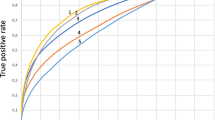Abstract
Literature-Based Discovery (LBD), a kind of knowledge discovery algorithm, is proposed by Don R. Swanson, which can assist the researchers to recognize implicit knowledge connection and further accelerate the generation of new knowledge. However, most of algorithms in the field of LBD mainly start from the co-occurrence of terms to find connections between terms, and barely consider the semantic relation actually existing between pairs of terms. In this paper, a kind of directional recognition algorithm of semantic relation is put forward to recognize the directionality of semantic relation existing between pairs of terms. This algorithm will automatically judge the direction of semantic relation based on WordNet and JWNL. The numerical experiment results have indicated that the algorithm proposed in this paper can well recognize the directionality of the semantic relation.
Access this chapter
Tax calculation will be finalised at checkout
Purchases are for personal use only
Similar content being viewed by others
References
Yetisgen-Yildiz, M., Pratt, W.: Using statistical and knowledge-based approaches for literature-based discovery. J. Biomed. Inform. 39, 600–611 (2006)
Weeber, M.: Drug discovery as an example of literature-based discovery. In: Džeroski, S., Todorovski, L. (eds.) Computational Discovery 2007. LNCS (LNAI), vol. 4660, pp. 290–306. Springer, Heidelberg (2007)
Koestler, A.: The Act of Creation. MacMillan Company, New York (1964)
Urbančič, T., Petrič, I., Cestnik, B.: RaJoLink: a method for finding seeds of future discoveries in nowadays literature. In: Rauch, J., Raś, Z.W., Berka, P., Elomaa, T. (eds.) ISMIS 2009. LNCS, vol. 5722, pp. 129–138. Springer, Heidelberg (2009)
Thaicharoen, S., Altman, T., Gardiner, K., et al.: Discovering relational knowledge from two disjoint sets of literatures using inductive logic programming. In: 2009 IEEE Symposium on Computational Intelligence and Data Mining, pp. 283–290. IEEE Press, New York (2009)
Hu, X., Zhang, X., Yoo, I., Zhang, Y.-Q.: A semantic approach for mining hidden links from complementary and non-interactive biomedical literature. In: 6th SIAM International Conference on Data Mining, Bethesda, MD, USA, pp. 200–209 (2006)
Hu, X., Zhang, X., Yoo, I., Wang, X., Feng, J.: Mining hidden connections among biomedical concepts from disjoint biomedical literature sets through semantic-based association rule. Int. J. Intell. Syst. 25(2), 207–223 (2010)
About Wordnet. http://wordnet.princeton.edu/
JWNL User’s Manual. http://sourceforge.net/apps/mediawiki/jwordnet/index.php?title=User%27s_Manual#Source
Acknowledgments
This work has been supported by grants from Program for Excellent Youth Scholars in Universities of Guangdong Province (Yq2013108). The authors are partly supported by the Key Grant Project from Guangdong provincial party committee propaganda department, China (LLYJ1311), Guangdong Natural Science Foundation (no. 2015A030313664, no. 2015A030310340), Special funds for science and technology development of Guangdong Province in 2016 (collaborative innovation and construction of platform: Big data analysis platform with accurate and real-time information services for scientific and technological innovation talent), Guangzhou science and technology project (no. 201510020013), Special Program for Applied Research on Super Computation of the NSFC-Guangdong Joint Fund (the second phase), and Guangdong Provincial Application-oriented Technical Research and Development Special fund project (no. 2015B010131017).
Author information
Authors and Affiliations
Corresponding author
Editor information
Editors and Affiliations
Rights and permissions
Copyright information
© 2016 Springer International Publishing Switzerland
About this paper
Cite this paper
Liu, X., Fu, H., Jiang, C. (2016). A Directional Recognition Algorithm of Semantic Relation for Literature-Based Discovery. In: Tan, Y., Shi, Y., Li, L. (eds) Advances in Swarm Intelligence. ICSI 2016. Lecture Notes in Computer Science(), vol 9713. Springer, Cham. https://doi.org/10.1007/978-3-319-41009-8_30
Download citation
DOI: https://doi.org/10.1007/978-3-319-41009-8_30
Published:
Publisher Name: Springer, Cham
Print ISBN: 978-3-319-41008-1
Online ISBN: 978-3-319-41009-8
eBook Packages: Computer ScienceComputer Science (R0)




